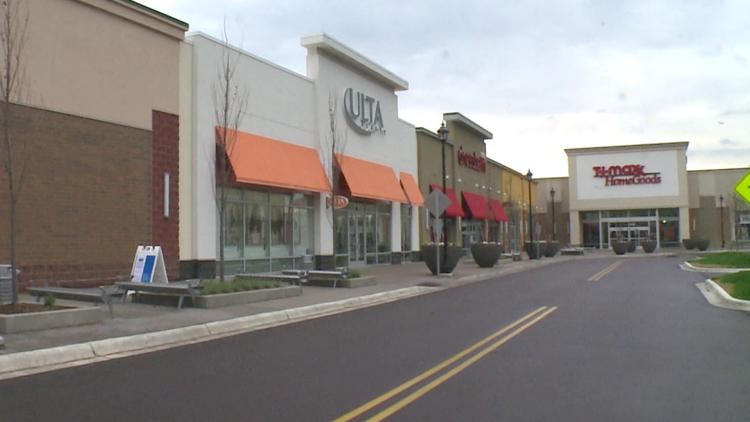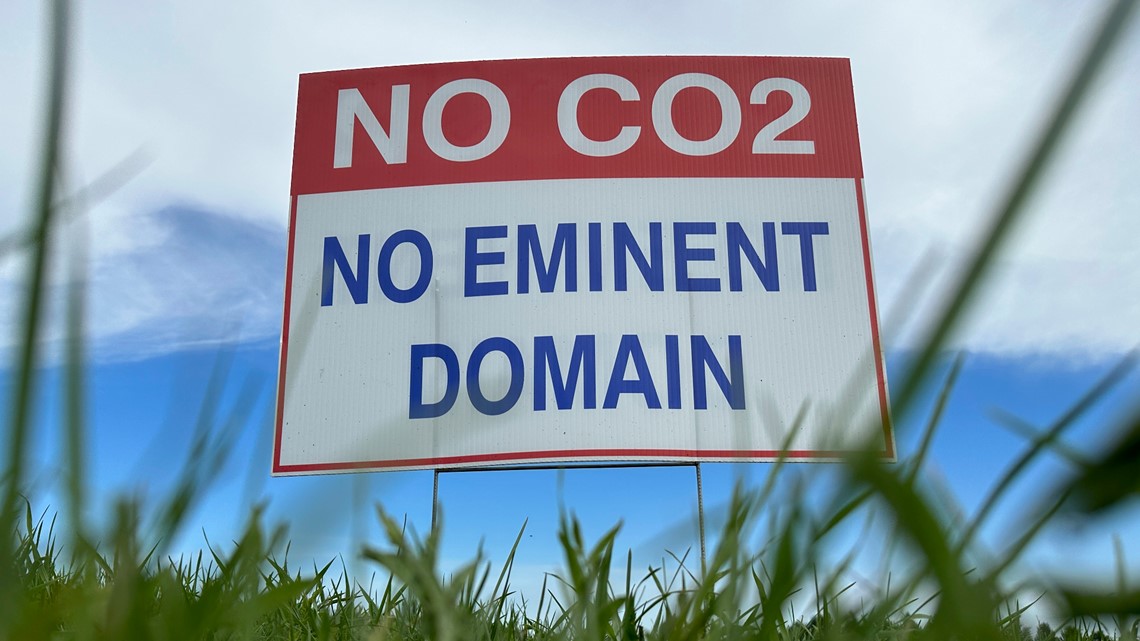Kare11
Woman dies after being struck by vehicle in Knollwood mall parking lot


The driver in the vehicle involved is reportedly cooperating with police and the investigation remains open and active.
ST. LOUIS PARK, Minn. — A woman has died after being struck by a vehicle in the parking lot of St. Louis Park’s Knollwood Mall.
A city spokesperson told KARE the incident happened Friday afternoon in the parking lot of The Shoppes at Knollwood. The city said despite life-saving efforts by emergency responders and paramedics, the woman was pronounced dead at the scene.
The driver in the vehicle involved is reportedly cooperating with police and the investigation remains open and active.
The victim, an adult woman, has not yet been identified.
Kare11
Brooklyn Park Police ask for help finding missing 57-year-old


According to the report, the BPPD said Andre Lane has been missing since 11 a.m. this morning.
BROOKLYN PARK, Minn. — The Brooklyn Park Police Department is asking for the public to help find a missing man who has Alzheimer’s.
According to the alert, the BPPD said 57-year-old Andre Lane has been missing since 2 p.m. this afternoon.
He stands at 5’9″ and weighs roughly 250 pounds. Lane suffers from Alzheimer’s and dementia and may not be able to take care of himself, said the BPPD.
Lane was last seen wearing grayish-blue Levi’s jacket, black hat, black sweatpants, a gray long sleeve t-shirt and black Jordan shoes, according to the report.
Officials believe Lane left his residence, near the 6600 block of Tessman Terrace, on foot. The BPPD is asking people who live near Tessman Farm Road/85th Avenue North to check yards and properties.
Anyone who sees Lane is asked to contact the Brooklyn Park Police Department at 763-493-8222.
This is a developing story and will be updated as more information becomes available.
Kare11
Homeless man tries to save 15-year-old crash victim from burning vehicle in Oak Harbor


Known as “Jeff the Giant,” Jeff Pangburn is well-known around Oak Harbor, Washington.
OAK HARBOR, Wash. — Jeff Pangburn has lived on Whidbey Island for 43 years. It’s his home, even if he doesn’t technically have one.
“I stay out in the woods,” Pangburn said. “It’s my time with God.”
For the past 15 years, Pangburn has lived in the woods of Oak Harbor. He’s a friendly face known all around town. People honk and wave to him as they drive by.
“I’m a popular guy, I guess,” Pangburn said.
But a recent tragedy has cast a shadow on Pangburn’s spirit.
“I’ve been bawling my head off like crazy,” Pangburn said. “I was sobbing tears, you know?”
Pangburn was bedded down for the night in a gazebo on Dec. 2 when 15-year-old Grace Horn’s car came crashing just 4 feet away. She failed to negotiate the curve at the intersection of state Route 20 and Libbey Road. Horn was reportedly delivering food to make money for Christmas presents.
Pangburn said he immediately called 911 and tried to pull Horn from the car as it burned, but the flames were too much. A power pole was also burning. Pangburn feared he might be electrocuted if the wires came down, so he ran into the woods.
Pangburn said he was heartbroken he could not do more.
“I couldn’t get in,” Pangburn said. “I couldn’t get in the vehicle and then the fire. I couldn’t do any more than what I did. If you know me you know that must really hurt for me not being able to do anything.”
Pangburn returned to the scene and spoke with authorities about what he saw. He freely admits he was in and out of jail for two decades, but said he has been on the straight and narrow for 15 years.
“I was a lousy criminal,” Pangburn said.
He now makes his home among the trees where he is most comfortable. By day he pulls his overloaded cart to Spin Café, which helps people in need on the island.
“This situation has been very hard on him,” said Valerie Roseberry, a case manager at the café.
At 6-foot-10, Pangburn is known as a “gentle giant” with a heart to match.
In recent weeks he has been offering extra blankets to those who might need them at the café. No one is surprised Pangburn would try to help someone in a desperate, dangerous situation like the one Horn found herself in.
“Of course, Jeff would do that,” Roseberry said. “Of course, he would. Honestly, as a mom, I am so grateful he was there so that she had somebody.”
Community members established an online fundraiser for Pangburn.
Pangburn said he does not want to profit from the misery of others but would like to use any donations to buy an RV and move out of the woods.
People can also donate size 17 shoes, socks, 2XL sweatpants, 4XL-sized hoodies, coats, hand warmers, beanies and gift cards at DK Market in Oak Harbor.
The Washington State Patrol said there have been at least 23 crashes at the intersection where Horn died over the past five years.
Pangburn believes the best way to honor her and him is to demand safety improvements be made.
Kare11
MN regulators approve controversial carbon pipeline


Despite the commission’s approval, Carbon Solutions can’t start construction in Minnesota until work has begun in North Dakota.
MINNESOTA, USA — A board of Minnesota regulators granted approval to a controversial carbon capture pipeline that has long drawn the ire of rural environmentalist groups.
The Minnesota Public Utilities Commission (PUC) approved the proposal from Ames, IA-based Summit Carbon Solutions for a carbon capture and storage pipeline project on Thursday.
“The Commission appreciates the robust stakeholder and landowner participation in this project,” said PUC Commissioner John Tuma, in a statement.
Despite the commission’s approval, Carbon Solutions can’t start construction in Minnesota until work has begun in North Dakota, said Tuma.
The PUC approved a “Otter Tail to Wilkin Carbon Dioxide Pipeline Project, which would be a 28-mile, 4.5 inch diameter carbon steel pipeline.
It’s part of a massive pipeline project that would link five states and cost more than $4 billion.
In total, the project calls for 1,958 miles of pipeline, in Iowa, Minnesota, Nebraska, North Dakota and South Dakota, that will capture carbon dioxide from biorefineries, before compressing the CO2 into the pipeline for its destination in North Dakota.
Landowners in several states have complained about the proposed pipeline, with one such case going to the state’s supreme court in Iowa. In that case, the Iowa Supreme Court ruled against a landowner who wanted to block representatives from Summit Carbon from entering his property.
The approval doesn’t come as a surprise to Sarah Mooradian, government relations and policy director at CURE, a rurally based non-profit focusing on environment issues and rural spaces and how those things intersect.
“We’re disappointed,” she said. “We really need to kind of pump the brakes on this. This would be Minnesota’s first CO2 pipeline. We don’t have experience with this. The company itself has never built a CO2 pipeline.”
Mooradian is concerned people living in rural communities weren’t heard on this project.
“Will they kind of be bearing the burden of this project or will they get any benefits from this project? We’re also concerned about safety,” she said. “We need to be taking a closer look, slower look at this. Is it doing the things the company says it will be doing, do we have the proper safety guardrails in place. Who’s going to benefit from this.”
She’s also worried about environmental and human health impacts.
“We know that back in 2020 that a larger CO2 pipeline ruptured back in Sartoria, Mississippi, sent about 45 people to the hospital for treatment as well as 200 people had to be evacuated from Sartoria,” she said.
Mooradian said she is worried this pipeline could become an enhanced oil recovery pipeline. According to the Department of Energy, this technique would inject carbon dioxide into the reservoir rock of an existing oil field to recover more oil and natural gas than would otherwise have been produced.
“Carbon capture and carbon pipelines have been around, that technology has been around since about 1970, but they’ve been used almost exclusively for enhanced oil recovery not in what we’re starting to see come about today which is dedicated geological storage,” she said.
Kevin Pranis, marketing director for Liuna! Minnesota and North Dakota said carbon capture pipelines are a key tool when it comes to climate change. He’s also on the Minnesota Governor’s Advisory Council on Climate Change.
“The science says globally carbon capture is essential to every viable pathway to getting to stabilizing our climate,” he said. “These are all facilities that emit carbon every single day. This pipeline means that most of those emissions are eliminated.”
He said this pipeline will bring thousands of jobs to the region and would be one of the largest climate infrastructure projects in the upper Midwest.
“Our members are really committed to being a part of the solution to climate change and what our members wanted a chance to put those skills to work,” he said. “These aren’t just jobs. These are career opportunities to bring people into construction trades to [earn] a middle class living and to have healthcare for your entire family and pension.”
Pranis said Liuna! is committed to climate progress as any organization out there and said this pipeline has been studied closely. He said they’re optimistic Summit will get the necessary permits to move the project forward. He said once it’s built other industries could tap in like cement because they are a major producer of carbon dioxide.
Amelia Vohs, climate director at Minnesota Center for Environmental Advocacy said she was pleased to see PUC put protections in place for Minnesota.
“If there’s funding issues, if they’re not able to complete it, if they can’t get permits needed in other jurisdictions that Minnesota isn’t left with a half-build, half-baked project,” Vohs said.
However, she wasn’t happy it got approved.
“We weren’t excited about the project. We don’t actually think it’s a great climate solution and it could actually result in increased greenhouse gas emissions,” Vohs said. “It’s a tricky balance. It’s always good to capture emissions but you could inadvertently be creating more emissions earlier in the life cycle chain of the ethanol.”
She said there are financial incentives for companies to build these types of pipelines.
“There have been a couple incentives. There’s some federal legislation that grants tax credits for capturing these carbon dioxide from these ethanol facilities, so that’s a financial incentive. There are also low carbon fuel markets like California,” she said. “I would say, the impetus for the project is that there is money to be made by capturing the carbon dioxide.”
Vohs said what the exact climate consequences will be are still unclear.




